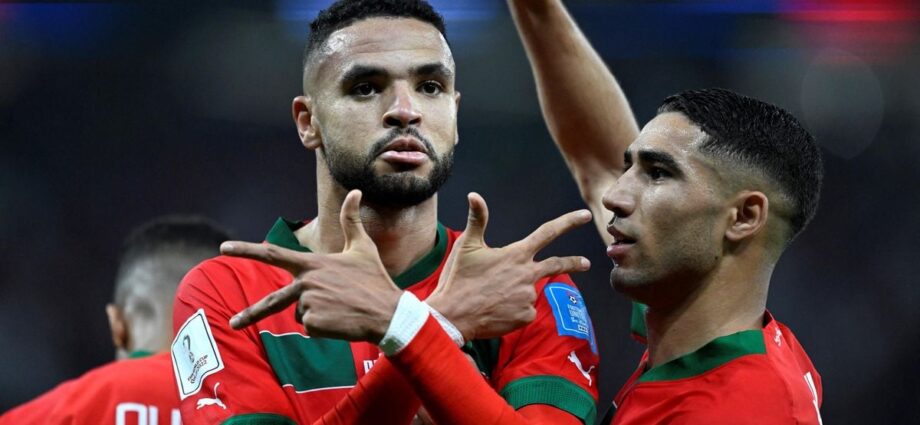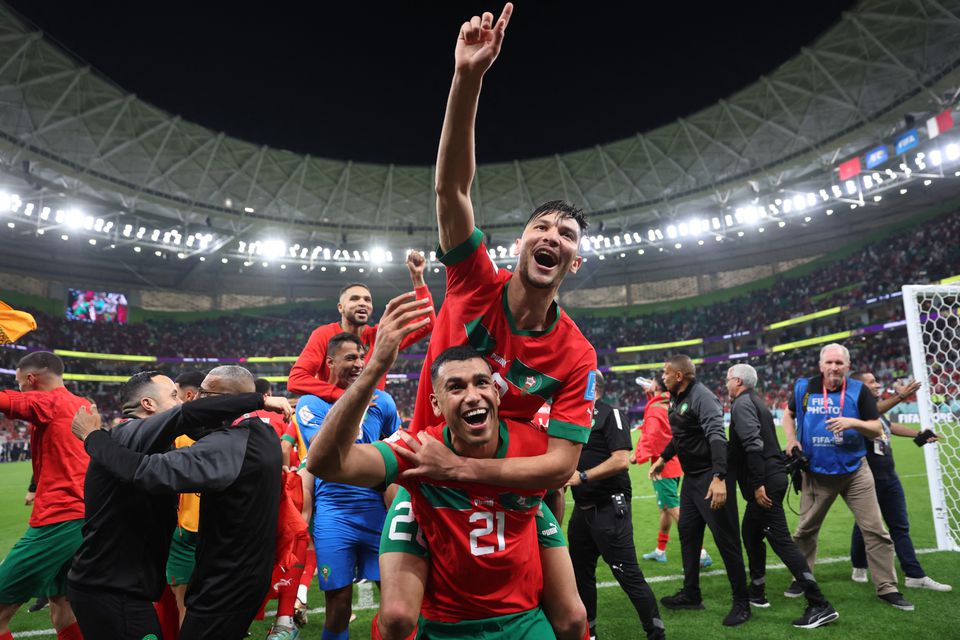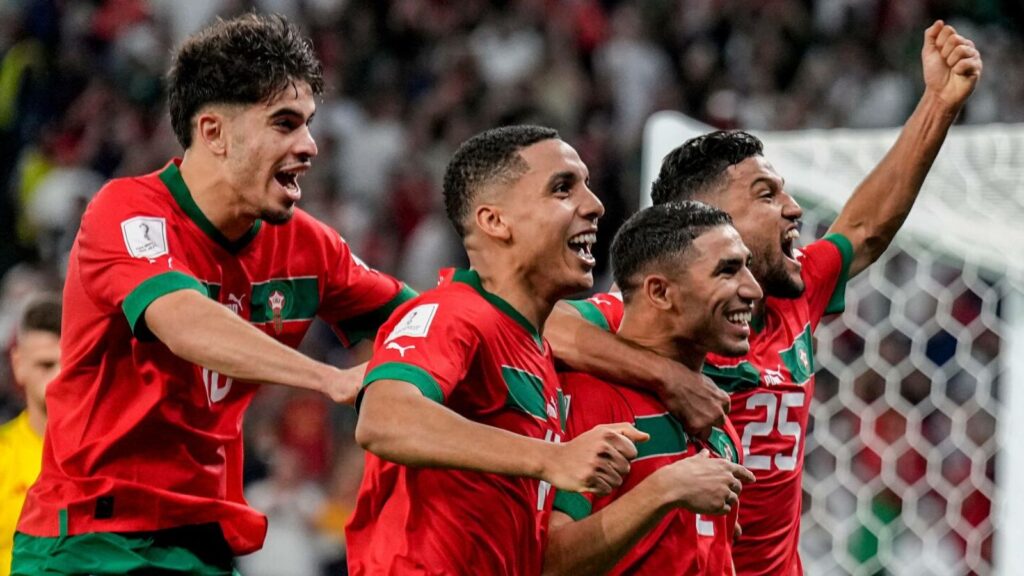Qatar 2022 World Cup
A brave and poised Morocco wrote football history on Saturday becoming the first nation from Africa to qualify for the semi-final of a Fifa World Cup.
Showing no fear, the Atlas Lions, backed by a raucous following, mauled Portugal 1-0 at the Al Thumama Stadium, 12km from central Doha in their quarterfinal match.
Sevilla forward Youssef en-Nesyri rose high to finish off a sweeping Atlas Lions move with a powerful header in the 42 minute.
Substitute Badr Benoun could have doubled the scoring in the historic win for Morocco after he found himself alone with the Portugal goalkeeper Diogo Costa in the dying moments of the eight minutes added but he shot straight at the goalie.
But it did not matter as the expectant crowd rooting for Morocco in the 44,198-seater who attended the fixture ruptured in ecstasy when Argentine referee Facundo Tello blew the final whistle.
“Morocco, Morocco,” they screamed.
“This is history. The first time Africa is qualifying for the semifinal,” a fan brandishing the Moroccan flag shouted in front of the press tribunal at the stadium.
After decades of trying, the moment had come and the raw emotions in the stadium told it all.
Cameroon (1990), Senegal (2002) and Ghana (2010) had all come close but fallen at the quarterfinal stage.
“Some people will say that this is a miracle. It is not a miracle. We have beaten the best teams in the world to reach where we are. This is through hard work and having self-belief,” said Morocco coach Walid Regragui.
He added: “We managed to defend very well. We are the best team in terms of our desire and tactics. We also had the crowd. That energy from the Arab and African crowd pushed us. The players have done us proud. We need to recover now.”
Portugal were looking to make their third semi-final appearance. They had won all their previous World Cup quarter-finals, 5-3 against Korea DPR in England 1966 and 3-1 on penalties after a 0-0 draw with England in German 2006.
They were coming from the biggest win in the round of 16, a 6-1 mauling of Switzerland, and had in their line-up ha- trick hero Goncalo Ramos.
The Portuguese dominated possession, 67 to 33 per cent but troubled little the sturdy Moroccan defence that had only let in one goal in their last four matches in Qatar.
Portugal coach Fernando Santos could only say: “We need to give credit to the Morocco team. It is not fair for us to lose but that is football. We knew the challenges we would face from them particularly defensively and knew we needed to be creative and challenge for the ball and score goals.”
The organised Atlas Lions were dangerous on the counter and they showed it in the 34th minute, Selim Amallah firing over the bar following a neat move from deep.
Portugal were then stunned by En-Nesyri goal minutes to half time and never really recovered even after throwing in their long-time hero Cristiano Ronaldo and rising forward Rafael Leao.
The cheering crowd played their 12th man to the hilt, a stranger in Qatar would have thought Morocco were the home team.
They showed their feelings for Ronaldo, roundly booing him when he was introduced into the game midway through the second half.
The club-less Ronaldo could have had the last laugh racing through the Moroccan rear guard deep, deep into the second half but his rasping shot was well dealt with by the excellent Seville goalkeeper Yassine Bounou, who did not put a foot wrong the entire evening.
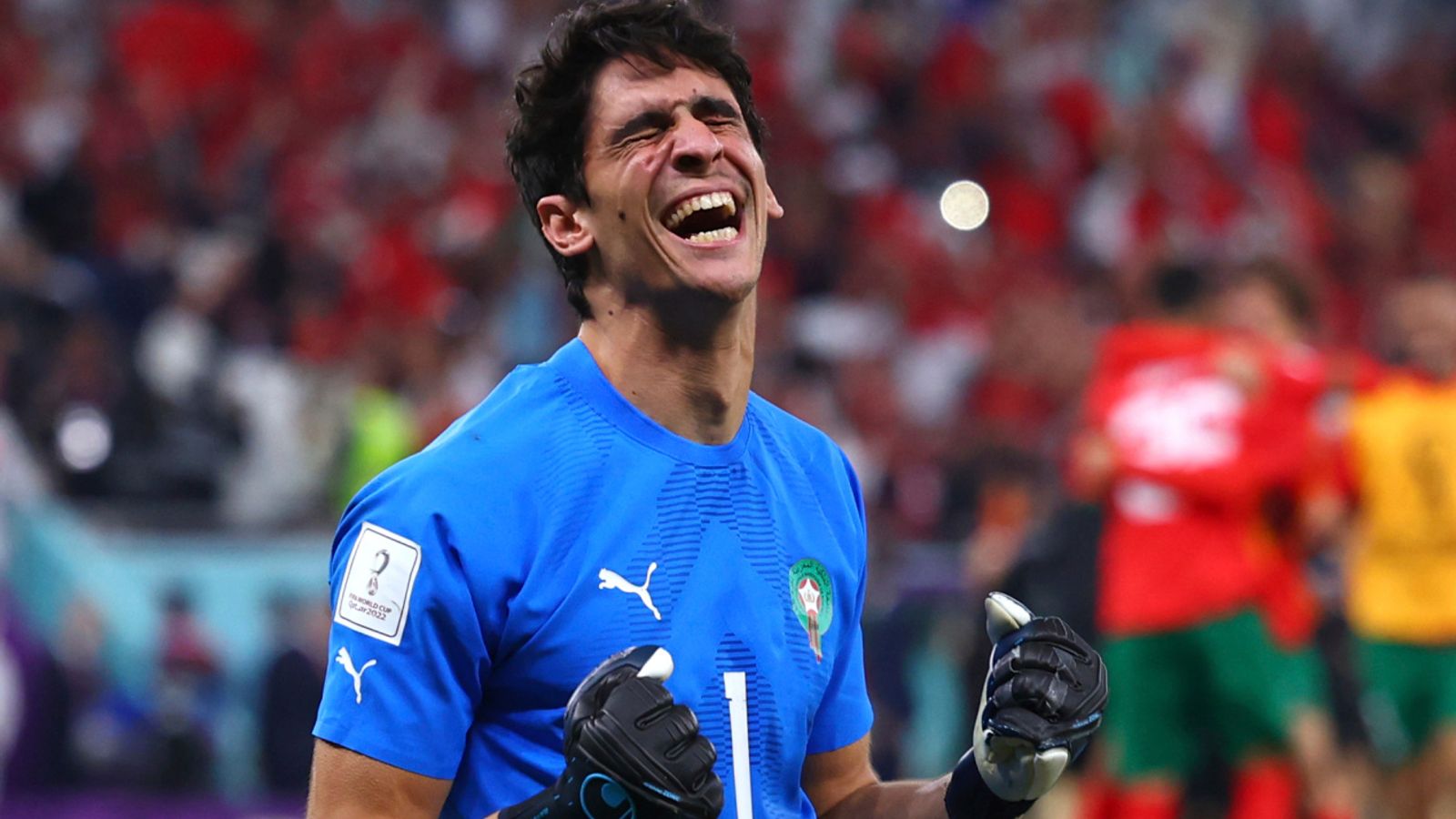
The 31-year-old is doubtless a strong contender for the Golden Glove award, but he has been helped by the players in front of him. Incredibly, Morocco have limited their opponents to just nine shots on target across five games so far.
It is all the more impressive when you consider how much of the ball their opponents have had.
Morocco have had just 31.6 per cent possession so far – the second-lowest average of all 32 teams to have featured in the tournament – and yet they rarely even look like conceding.
Morocco will now face France in the semi-final on Wednesday at Al Bayt Stadium.
Share this news
This Year’s Most Read News Stories
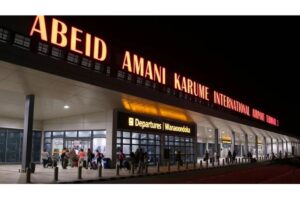
High Court rejects Transworld’s application
The High Court in Dar es Salaam has struck out an application in which Transworld Aviation, a ground handler at the Abeid Aman Karume International Airport (AAKIA) was seeking permission to sue the Tanzania Civil Aviation Authority (TCAA).Continue Reading
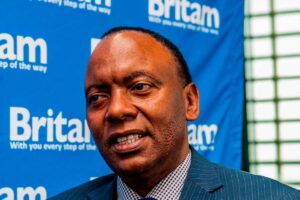
Britam half-year net profit hits Sh2bn on higher investment income
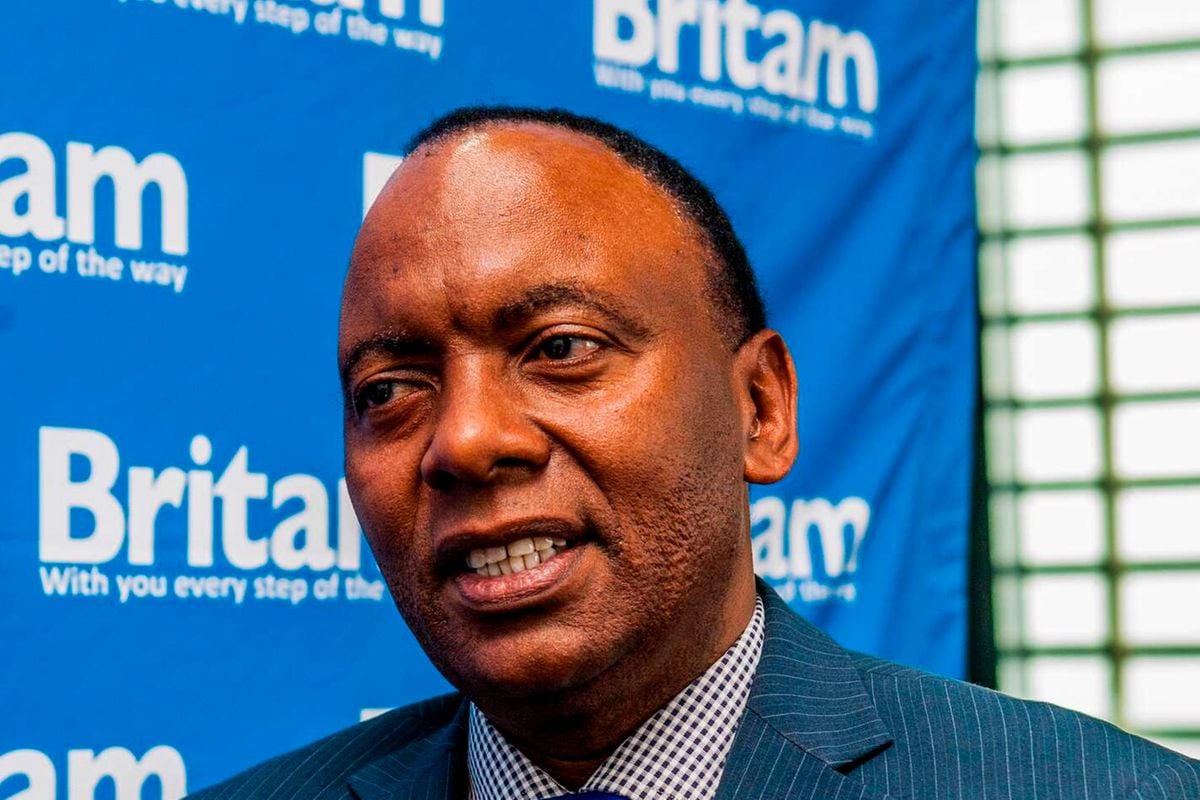
Insurer and financial services provider Britam posted a 22.5 percent jump in net earnings for the half-year ended June 2024, to Sh2 billion, buoyed by increased investment income.
The rise in half-year net profit from Sh1.64 billion posted in a similar period last year came on the back of net investment income rising 2.5 times to Sh13.27 billion from Sh5.3 billion.
“We are confident in the growth and performance trend that Britam has achieved, supported by its subsidiaries in Kenya and the region. Our business is expanding its revenue base while effectively managing costs,” Britam Chief Executive Officer Tom Gitogo said.
“Our customer-centric approach is fueling growth in our customer base and product uptake, particularly through micro-insurance, partnerships, and digital channels.”
The investment income growth was fueled by interest and dividend income rising 34 percent to Sh9.1 billion, which the insurer attributed to growth in revenue and the gains from the realignment of the group’s investment portfolio.
Britam also booked a Sh3.79 billion gain on financial assets at a fair value, compared with a Sh1.8 billion loss posted in a similar period last year.
The increased investment income helped offset the 12.7 percent decline in net insurance service result to Sh2.13 billion in the wake of claims paid out rising at a faster pace than that of premiums received.
Britam said insurance revenue, which is money from written premiums, increased to Sh17.8 billion from Sh16.6 billion, primarily driven by growth in the Kenya insurance business and regional general insurance businesses, which contributed 30 percent of the revenue.
The group has a presence in seven countries in Africa namely Kenya, Uganda, Tanzania, Rwanda, South Sudan, Mozambique, and Malawi.
Britam’s insurance service expense hit Sh13.6 billion from Sh11.3 billion, while net insurance finance expenses rose 2.6 times to Sh12.3 billion during the same period.
“Net insurance finance expenses increased mainly due to growth in interest cost for the deposit administration business driven by better investment performance. This has also been impacted by a decline in the yield curve, which has led to an increase in the insurance contract liabilities. The increase has been offset by a matching increase in fair value gain on assets,” said Britam.
Britam’s growth in profit is in line with that of other Nairobi Securities Exchange-listed insurers, which have seen a rise in profits.
Jubilee Holdings net profit in the six months increased by 22.7 percent to Sh2.5 billion on increased income from insurance, helping the insurer maintain Sh2 per share interim dividend.
CIC Insurance Group posted a 0.64 percent rise in net profit to Sh709.99 million in the same period as net earnings of Liberty Kenya nearly tripled to Sh632 million from Sh213 million, while Sanlam Kenya emerged from a loss to post a Sh282.2 million net profit.

Mbeto on Mwinyi: He created today’s affluent people
The CCM Secretary of Ideology and Publicity (Zanzibar), Mr Khamis Mbeto Khamis, said the late President Ali Hassan Mwinyi was the architect of the current class of affluent people.Continue Reading

